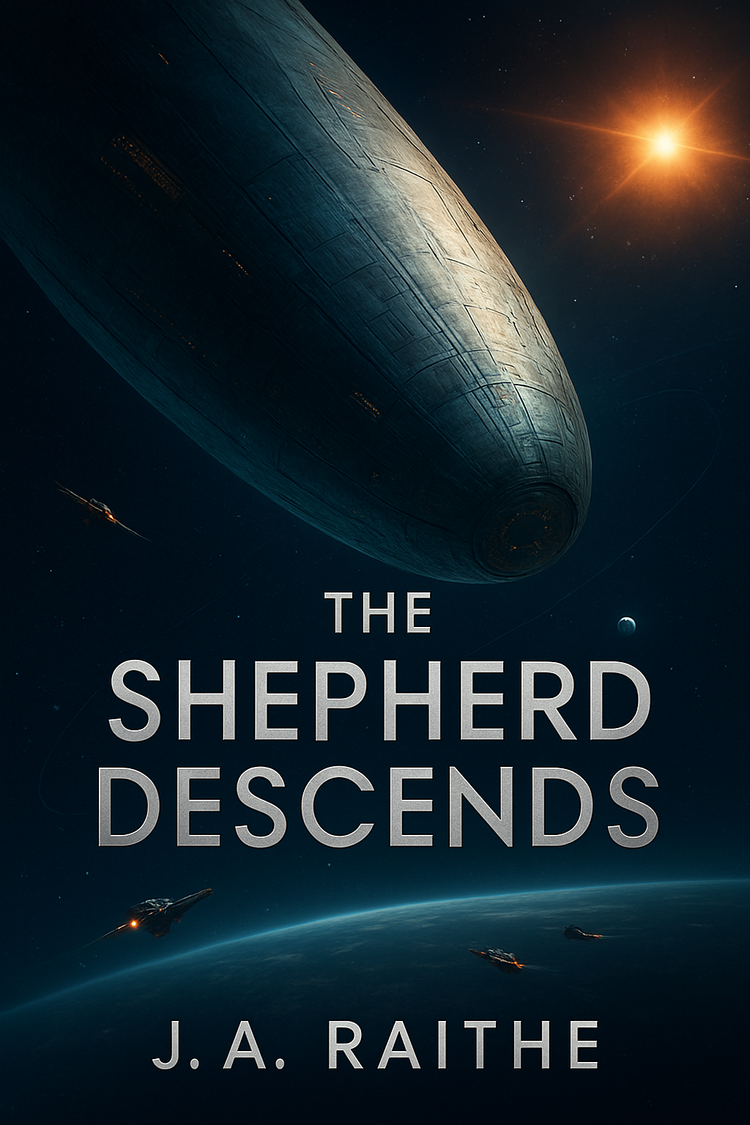
First contact · Cosmic test
THE SHEPHERD DESCENDS
A first-contact science fiction novel by J.A. Raithe
Humanity’s first message from the stars is not a greeting, it is an exam.
Available now
Available in Kindle, paperback, hardcover, and audiobook narrated by Maria Marquis.
What readers are saying
“A pulse-pounding, thought-provoking ride… an absolute must-read for fans of Arthur C. Clarke or Cixin Liu.”
W. Marcy, Amazon review
“Unpredictable, electrifying, and intriguing… this impossible-to-set-aside story should be on every science fiction fan’s must-read list.”
Joan E., Amazon review
“A great example of indie sci-fi with a hopeful worldview instead of grim nihilism.”
Patrick S., Amazon review
“Independently published... professional qualities made the reading experience remarkable.”
Ron P., Amazon review
An impossible object falls from deep space, pulsing with an 89-minute pattern no natural source can explain. As the world races to decode the signal, one scientist discovers the truth, they are not alone, and they are being judged.
About the book
When an object from interstellar space drops into the inner solar system and begins transmitting a precise rhythm of pulses, humanity finally has the thing it has always dreamed of and feared, undeniable proof that someone out there is watching.
Dr. Benjamin Mordock has spent his life chasing signals in the noise, trying to separate wishful thinking from real contact. The Shepherd’s arrival changes everything. The pulses are not a beacon or a greeting, they are instructions, and buried in those instructions is a choice that will decide the fate of the species.
As governments, militaries, and corporations fight to control access to the Visitor, Ben becomes the unlikely point of contact between humanity and a being that does not think like anything that evolved on Earth. The Shepherd has come to see whether humanity is ready to join a larger design, or whether it will be reset before it can become a threat.
The Shepherd does not speak in words or images. It speaks in thresholds, in tests, in the quiet ways people treat each other when they think no one is watching. Ben’s instruments can read the pulses. His conscience is the only thing that might pass them.